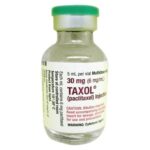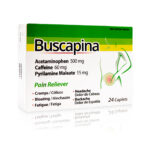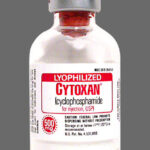Caffeine Pills: How it Works, Dosage, Side Effects, Legality
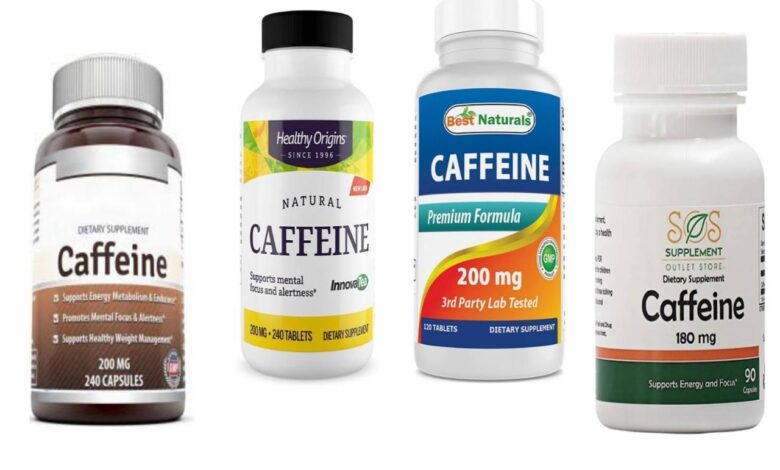
Caffeine pills are supplements that contain caffeine, a stimulant drug that increases activity in the central nervous system. Caffeine pills may contain natural or synthetic forms of caffeine. Caffeine is one of the most commonly used stimulants among athletes. Taking caffeine, within limits, is allowed by the National Collegiate Athletic Association (NCAA). Urine concentrations over 15 mcg/mL are prohibited. It takes most people about 8 cups of coffee providing 100 mg/cup to reach this urine concentration.
Check the label of any caffeine supplement you intend to buy because the amount of caffeine in these pills varies depending on the brand. In many cases, they contain 100 to 200 milligrams (mg) per tablet. This is more than in most cups of coffee but less than in some energy drinks. Caffeine provides no nutritional value on its own. It’s tasteless, so you won’t necessarily know if it’s in your food either. Even some medications may contain caffeine without your knowledge.
This ingredient almost always causes some symptoms. At a minimum, you may feel more energetic, but over time, too much caffeine may cause withdrawal symptoms.
How do caffeine pills work?
According to Healthline, once consumed, caffeine pills are quickly absorbed from the gut into the bloodstream. From there, it travels to the liver and is broken down into compounds that can affect the function of various organs.
Caffeine pills work by blocking the effects of adenosine, which is a neurotransmitter that relaxes the brain and makes you feel tired. Normally, adenosine levels build up over the day, making you increasingly more tired and causing you to want to go to sleep.
Caffeine helps you stay awake by connecting to adenosine receptors in the brain without activating them. This blocks the effects of adenosine, leading to reduced tiredness. It may also increase blood adrenaline levels and increase brain activity of the neurotransmitters dopamine and norepinephrine.
This combination further stimulates the brain and promotes a state of arousal, alertness, and focus. Because it affects your brain, caffeine is often referred to as a psychoactive drug.
How long do caffeine pills take to kick in?
Caffeine pills tends to exert its effects quickly. This is because, under normal circumstances, adenosine molecules bind to special receptors in the brain, which slows down brain activity in preparation for sleep. However, caffeine prevents this from happening by binding to adenosine receptors. The body rapidly absorbs caffeine, so people may feel its effects within minutes.
Do caffeine pills help you lose weight?
Yes, Caffeine pills can help you lose weight in the short term. Caffeine can boost the metabolic rate and increase fat burning, but after a while people become tolerant to the effects and it stops working.
In addition, taking caffeine in combination with ephedrine seems to help reduce weight, short-term. Taking 192 mg of caffeine in combination with 90 mg of ephedra daily for 6 months seems to cause a modest weight reduction (5.3 kg or about 12 pounds) in overweight people.
This combination, along with limiting fat intake to 30 percent of calories and moderate exercise, also seems to reduce body fat, decrease “bad” low-density lipoprotein (LDL) cholesterol, and increase “good” high-density lipoprotein (HDL) cholesterol. However, there can be unwanted side effects. Even in carefully screened and monitored otherwise healthy adults, caffeine/ephedra combinations can cause changes in blood pressure and heart rate. Early research shows that taking a specific combination product (Prograde Metabolism) along with dieting reduces body weight and the size of the waist and hips.
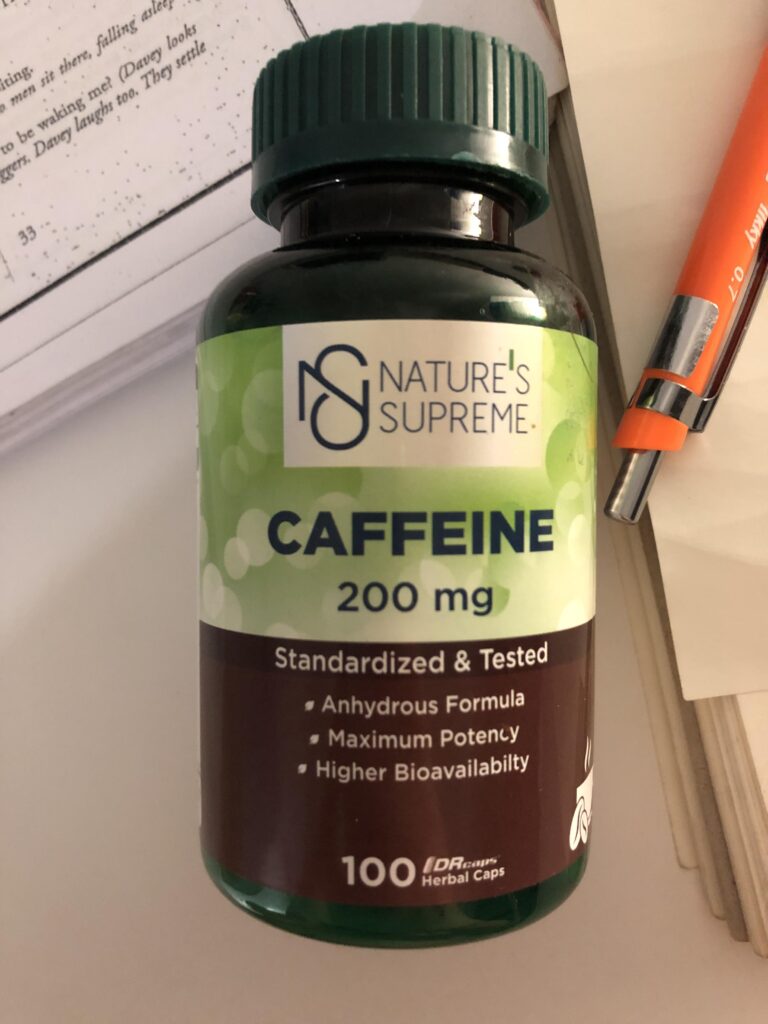
Can I use caffeine pills for studying?
Studies have shown that taking 200 mg of caffeine by mouth daily seems to improve memory in college students or people with outgoing personalities. A 2014 study examined the effects of pills containing 200 mg of caffeine on memory in 160 adults. The researchers found that those who took caffeine pills during a learning task did better on memory tests 24 hours later compared with those who took a placebo.
Are caffeine pills safe?
Generally, up to 400 milligrams (mg) of caffeine a day appears to be safe for most healthy adults. That’s roughly the amount of caffeine in four cups of brewed coffee, 10 cans of cola or two “energy shot” drinks. Keep in mind that the actual caffeine content in beverages varies widely, especially among energy drinks. For reference, the Food and Drug Administration (FDA) estimate that caffeine levels in common products are as follows:
- An 8-ounce (oz) tea contains 30–50 milligrams (mg).
- An 8-oz coffee contains 80–100 mg.
- An 8-oz energy drink contains 40–250 mg.
According to the FDA, people can usually take 400 mg a day without negative side effects.
When are caffeine pills bad for you?
According to the FDA, caffeine could have negative side effects when it is consumed for a long time or in high doses (>400 mg per day). Caffeine can cause insomnia, nervousness and restlessness, stomach irritation, nausea, increased heart rate and respiration, and other side effects. Larger doses might cause headache, anxiety, agitation, and chest pain.
Are caffeine pills illegal?
No, caffeine pills are not illegal. However, a new Guidance issued by the U.S. Food and Drug Administration (FDA) mandates that dietary supplements containing pure or highly concentrated caffeine in powder or liquid forms are considered unlawful when sold in bulk quantities directly to consumers.
The guidance also provided recommendations on how manufacturers can formulate and market dietary supplements containing caffeine that do not present a significant or unreasonable risk of illness or injury.

